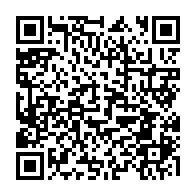Lorne Abugov
Confined to these four walls, my family members have become explorers in our own home, attacking clutter, cleaning out drawers and cupboards, tidying up and finding things we had forgotten existed. Our best find so far has been an old magazine with a startlingly relevant message.
Back in October 2005, a virulent avian-based flu, which scientists classified as a strain of the H5N1 virus, was ravaging its way through much of Southeast Asia, decimating bird populations as well as some humans who came in contact with infected birds at live-poultry markets.

The City’s first COVID-19 Assessment Centre situated at the Brewer Arena in Old Ottawa South has now been supplemented as confirmed cases of coronavirus multiplied. Photo by John Dance
That same month, 15 years ago, National Geographic magazine devoted an unprecedented 30 pages of coverage to an in-depth report on the H5N1 epidemic, including a front cover headline that posed a question of apocalyptic proportions: The Next Killer Flu: Can We Stop It? Today, sadly, we have a real-life answer to that question: Perhaps.
Perhaps we can stop it, but with inordinate difficulty, and at an incalculable cost of human life and social and economic disruption.
As this issue of The Mainstreeter was printed, the world we all share, and our country, and our community here in Old Ottawa East, continued to grapple with the scourge of the coronavirus. By now, we are all aware of its wrenching and unprecedented impact on our daily lives and around the globe. Each day, Canadians are buffeted by new medical developments and social and economic disruption beyond anything we have ever experienced.
In that 2005 National Geographic report, journalist Tim Appenzeller described the relatively low human death toll of the H5N1 bird flu virus. “So far this virus…isn’t good at passing from birds to people, let alone from one person to the next.”
Appenzeller quoted Jeremy Farrar, a British doctor who fought on the front lines of H5N1 in Vietnam, and who issued a chilling warning for the future. “It’s going to happen, at some point, that virus-like H5N1 changes to be more able to transmit from one person to another. It’s bound to happen. And when it does, the world is going to face a truly horrible pandemic.”
Enter the coronavirus of 2020…
Today, there seems to be almost nothing to say about the perils of the coronavirus that hasn’t already been said. Indeed, many people have already begun thinking beyond the pandemic, pondering what kind of world will be left in its wake.
The question increasingly asked is not how the virus is transmitted, or whether humanity will survive the outbreak, but rather, what kind of world will emerge when we do survive it? How will post-pandemic society differ from the world we knew pre-pandemic?
One possible outcome of the world’s struggle with coronavirus may lie closer at hand than we suspect – within our own communities. It may be that the greatest societal changes wrought by COVID-19 emanate from within ourselves, amplified by our closest family members and our friends and neighbours, radiating outward into our neighbourhoods and beyond.
Born out of mandated self-isolation and fueled by shared fears for ourselves and our loved ones, we may see evolving a new sense of what is truly important in our lives, and a re-evaluation of where our priorities ought to lie. If figuratively speaking, society as we knew it had a head to shake, that head must be shaking long and hard right about now.
Here in Old Ottawa East, as elsewhere in Ottawa, across Canada and around the world, we are witnessing many extraordinary examples of thoughtfulness, good neighbourliness and of reaching out to those around us who are more vulnerable or in need. Neighbours are shopping for each other, sharing their own food and supplies. There seems to be afoot a wonderful rekindling of compassion and a growing belief that concern for others has a valued and a rightful place in our world.
One could easily downplay or dismiss this “blip of societal kindness.” Some may see this spate of good-deed-doing as nothing more than a natural and ephemeral human response to a world temporarily gone mad. Perhaps these random acts of kindness will be replaced by the prepandemic status quo once the global “All Clear” is signalled. But perhaps not.
Given everything that coronavirus has thrown at us, it seems inevitable that our values and our ethics must undergo a radical change. Just as humanity was forever altered in the aftermath of the global wars of the 20th century, people – young and old alike – can be expected to seriously question the pre-pandemic status quo and quite possibly embark on a different path.
The shape that a post-pandemic world might take is beyond speculation for the moment. But there are hopeful signs that we may indeed experience an intergenerational awakening, an informed refocusing on ethics and decency, a taking of small steps down a different road, a road back to each other – the road to community.






